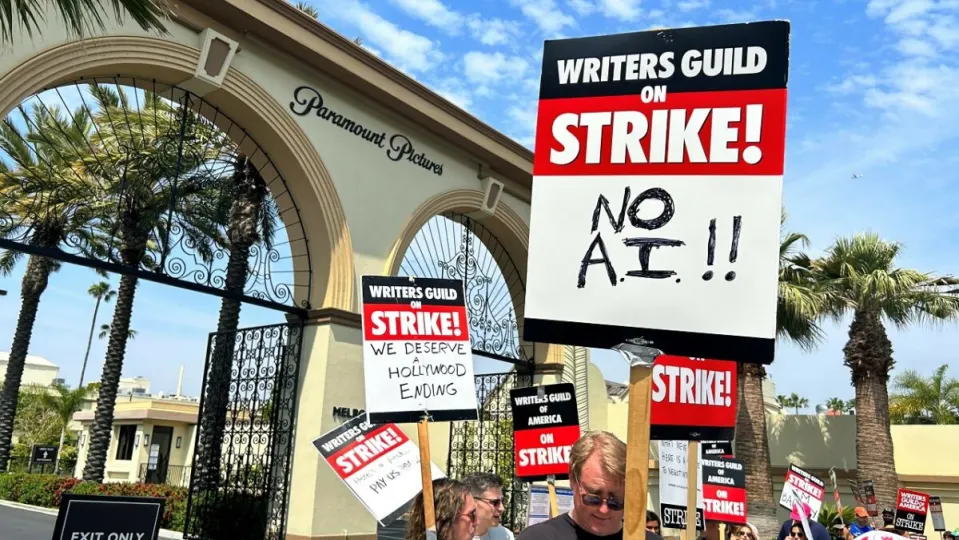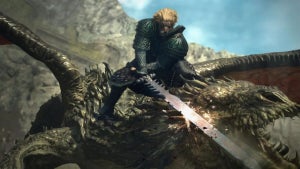The fear of artificial intelligence has long been fertile ground for film and television creators. The arrival of AI has always been portrayed as the end of the world, or at least as a danger to humanity.
These movies play on the audience’s social mistrust of the unknown technological, the impending threat of singularity, and usually involve killer robots and a central computer that needs to be hacked to save the planet.
However, over the decades, what we once considered science fiction has come closer to scientific reality, causing the antagonist science fiction trope to conveniently return to the screen.
In the past year, Operation Fortuna: Ruse de Guerre, Mission Impossible: Dead Reckoning, and, of course, Black Mirror have explicitly addressed techno-paranoia.
Collectively, these on-screen stories reiterate warnings to the audience about the misuse of AI, question its detrimental implementation by corporate or bureaucratic structures, and caution against its public deployment before its ethical capabilities have been tested.
For the first time, Hollywood fears AI
They also come at a time when Hollywood’s real-world anxiety over the economic and creative threat of AI is being fought on the picket line.
The Screen Actors Guild-American Federation of Television and Radio Artists (SAG-AFTRA) joined the Writers Guild of America (WGA) in a strike for the first time in 60 years in July 2023, as their union representatives negotiate fairer conditions with the Alliance of Motion Picture and Television Producers (AMPTP).
This includes contractual protection against the obsolescence of AI tools. But both in front of and behind the camera, the question remains: is AI the real threat, or are humans the ones wielding it?
While Hollywood isn’t using AI to directly threaten humanity (yet) like its movie villains, its use has become the central ethical argument in these negotiations.
The writers’ strike also points to AI
Many actors and Hollywood writers would argue that studio executives driving AI are not using it correctly.
According to April Wolfe, a writer of Black Christmas and a member of the WGA, whose second feature film, Clawfoot, is in post-production, machine learning tools were not originally one of the main points of contention in the WGA’s new agreement proposal to the AMPTP.
The growing number of AI-based writing and content creation tools entering the market, like ChatGPT, has encouraged the WGA, representing around 11,500 writers, to demand that studios do not use them to draft outlines or initial drafts.
This would prevent writers from receiving one-time payment checks. WGA members earn much less money if they are only hired to rewrite or polish a script rather than originating it as the primary writer.
Using AI in this way would make it difficult for WGA members to earn the minimum amount required for insurance or a pension, the writer argues.
Secondly, Wolfe points out that AI would lead to a deterioration of creative originality and integrity. AI generative writing tools rely on pre-existing scripts and literature extracted from the internet. “You can only get AI to regurgitate what has already been done,” she says. “That completely halts any progress in storytelling.”
Netflix in the eye of the storm
Netflix has already employed AI tools, such as its machine learning platform, to “assist creative decision-makers” and mitigate the risk when selecting which movies and series to commission and promote.
Earlier this year, Netflix also faced criticism for using AI to generate background art for the short film Dog and Boy. In a tweet from Netflix Japan, the company suggested that the work by Netflix Anime Creators Base, technology developer rinna Inc., and WIT STUDIO was “an experimental effort to assist the anime industry” due to a shortage of labor.
Studio Ghibli co-founder Hayao Miyazaki once said about AI-generated imagery in a 2016 documentary, “I firmly believe this is an insult to life itself,” and many in the artistic communities share that sentiment. AI has become the common enemy, there’s no doubt about it.


